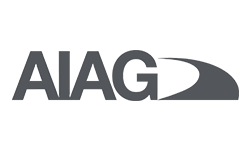This Workshop will assist in the execution of Design FMEAs using the new AIAG & VDA FMEA Handbook. After attending this course, you gain the ability to describe the benefits of a robust technical risk analysis using the DFMEA development approach described in the AIAG & VDA FMEA Handbook, execute a DFMEA applying the 7-Step approach, evaluate the consistency in DFMEA application, measure the effectiveness and efficiency of DFMEA within your organization, and develop an Implementation Plan for your organization to adopt the AIAG & VDA FMEA.
Select an existing open enrollment session, or contact us for additional training options.


This Workshop will assist in the execution of Design FMEAs using the new AIAG & VDA FMEA Handbook. After attending this course, you gain the ability to describe the benefits of a robust technical risk analysis using the DFMEA development approach described in the AIAG & VDA FMEA Handbook, execute a DFMEA applying the 7-Step approach, evaluate the consistency in DFMEA application, measure the effectiveness and efficiency of DFMEA within your organization, and develop an Implementation Plan for your organization to adopt the AIAG & VDA FMEA.
Training In Context
Technical risk mitigation is crucial for business sustainability during this high-speed adoption of technology innovation affecting all automotive systems, subsystems, and components. There is a general recognition of the urgent need to conduct effective Design Failure Mode and Effects Analysis (DFMEA). This challenge cannot be addressed without a robust methodology. This makes the new AIAG & VDA FMEA Handbook a critical update for the industry. The concept of robustness exists throughout all sections of the new DFMEA development approach, presented in the new AIAG & VDA Handbook. The Handbook contains a structured method for identifying product functions and potential failure modes.
*For private workshops for your organization, a one (1) day add-on Application Coaching Workshop service is available (i.e., facilitated development of a partial FMEA based on the Implementation Plan)
Length
2 Days (16 Hours)
Prerequisites
None
Recommended for Core Design FMEA Team to including design engineers/system engineers, component engineers, test engineers, quality/reliability engineers, project managers, FMEA moderators/facilitators, auditors, and other product design roles with a limited working knowledge and background with AIAG Design FMEA.
Day 1
Day 2
Completion the course affords a Dually Branded Plexus International and AIAG Certificate of completion.

Questions about the privacy and security of our Live Virtual Solutions? Learn more
CT0002-00
Subscribe to our newsletter.